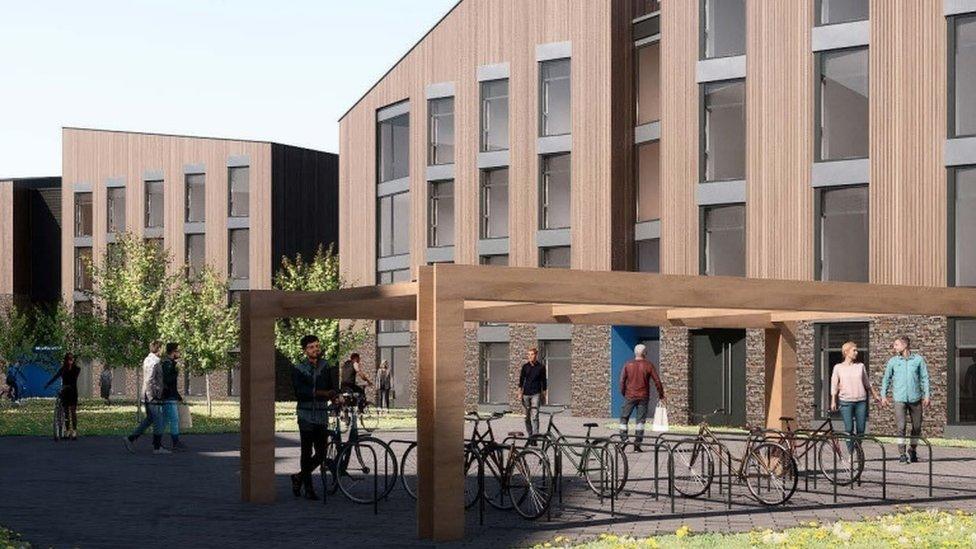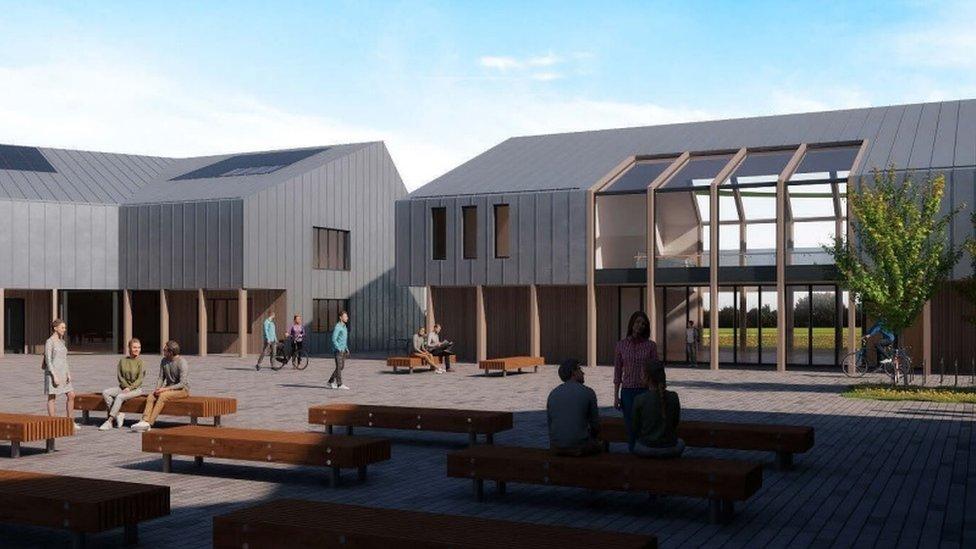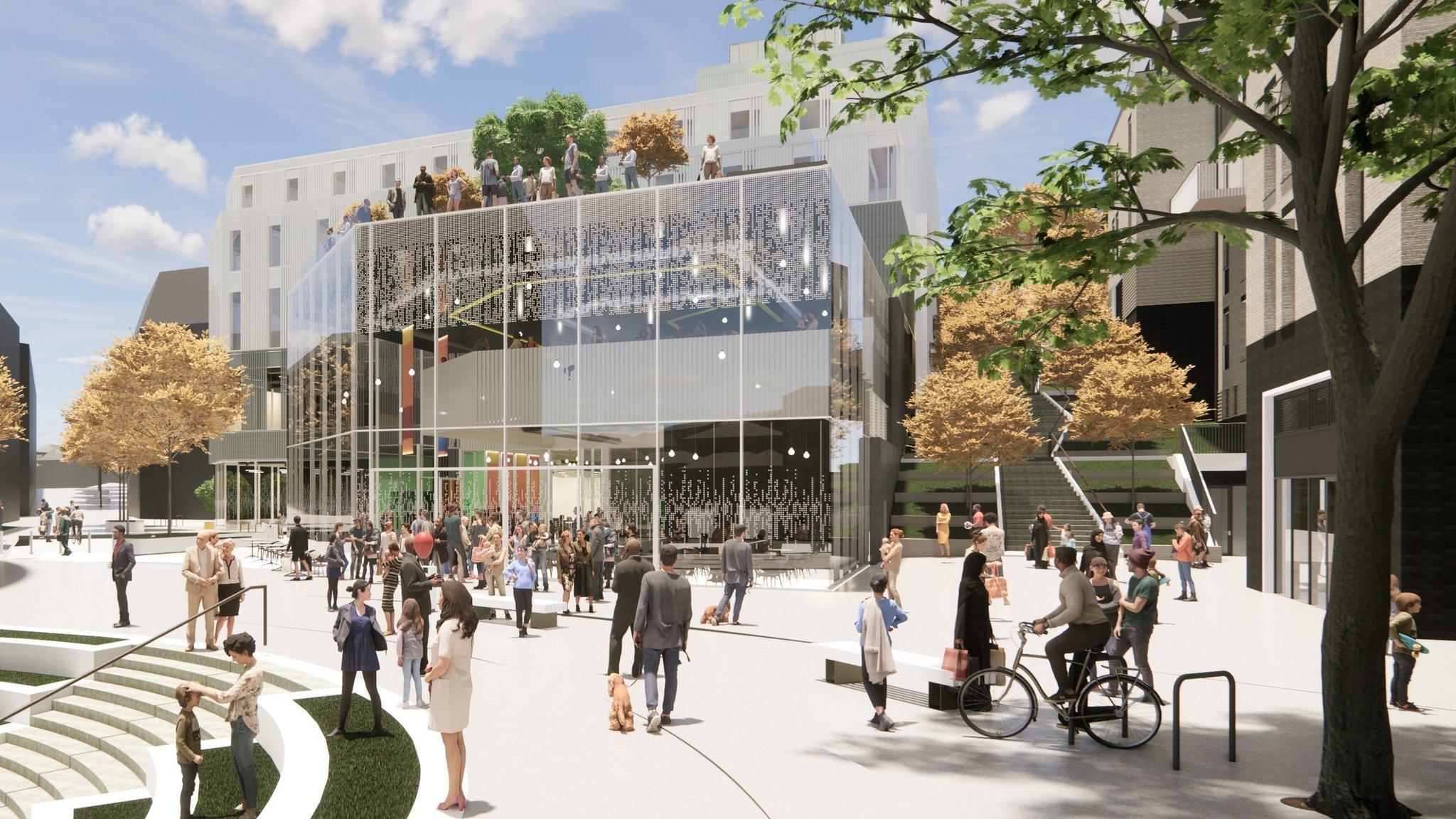Developers lose vote on 1,800-bed student village near Penryn
- Published

Ponsanooth and Mabe parish councils said Halo Village would have a "significant impact" on the area
Parts of a proposal to build a large student village in Cornwall have been refused by councillors.
The Halo Village development, which would be located near the Penryn Campus of Falmouth University, was given outline planning permission in 2018.
Cornwall Council's Strategic Planning Committee refused further permission on matters relating to landscaping, ecology and scale on Thursday.
The proposal was strongly opposed by two town councils.
The Local Democracy Reporting Service said the 20-hectare (49-acre) site would see 1,858 beds for students, a park-and-ride facility and more than 600 parking spaces.
Among the other proposed facilities are a 48-bed budget hotel, shops and a doctor's surgery.
'Island of concrete'
Ponsanooth parish councillor Lorna Jackson said the application should be refused on ecological grounds.
"A rural parish faced with a 40-acre island of concrete and tarmac, which would be one of the largest developments in Cornwall and is totally out of any planning context," she told the committee.
She said more than 300 metres of existing Cornish hedge would need to be removed under the proposal.

The 20-hectare site would see 1,858 beds for students
Keith West, representing Mabe Parish Council, questioned the safety of a proposed cycling and footpath along the A39 which would run from the site to the Penryn Campus.
"We can all make mistakes, the secret is not making the same mistake twice," he said.
"Cornwall Planning was advised several years ago that access to the university campus across the A39 would prove fatal. That advice was ignored and sadly that prediction has come true."
'Housing crisis'
Applicant Andy West told the meeting the development would address a shortfall of accommodation in Cornwall.
"This housing crisis is amplified in Falmouth and Penryn where the number of HMOs [houses in multiple occupation] is over 30% higher than the national average.
"There is a deficiency of sustainable housing for students now let alone to meet future demand and the development already benefits from outline permission."
Councillor Dulcie Tudor, the committee's vice-chairman, said of the original planning decision: "The lack of scrutiny between 2018 and today makes me feel uneasy."
The committee voted in favour of refusal on the grounds that "design and layout would lead to the fragmentation of ecologically important hedges" with light spill having an impact on the bat population and ecological value of the site.

Follow BBC News South West on Twitter, external, Facebook, external and Instagram, external. Send your story ideas to spotlight@bbc.co.uk, external
Related topics
- Published20 April 2023
